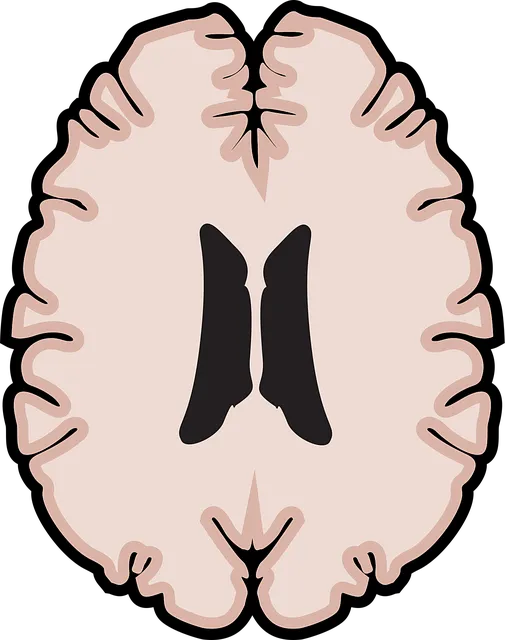The Boulder Kaiser Permanente mental health facility employs a multifaceted, data-driven approach to evaluating its programs' impact through qualitative and quantitative assessments. This includes tracking participant satisfaction via surveys, measuring changes in self-reported symptoms, workshop attendance rates, and community conflict resolution strategies. By utilizing Participant Satisfaction Surveys (PSSs) and other innovative methods, the facility gains comprehensive insights into program effectiveness, enabling informed adjustments to meet evolving client needs, with potential benefits extending to the broader community.
The evaluation of mental wellness programs is crucial for measuring effectiveness and improving patient care, especially at facilities like Boulder Kaiser Permanente’s mental health center. This article explores three key methods used to assess the impact of such programs, focusing on specific strategies employed by Boulder Kaiser Permanente. We discuss Assessing Program Impact through various metrics, the power of Participant Satisfaction Surveys in uncovering service quality insights, and Data Analysis techniques that inform future mental wellness program strategies for optimal patient outcomes.
- Assessing Program Impact: Methods and Metrics for Boulder Kaiser Permanente Mental Health Facility
- Participant Satisfaction Surveys: Unlocking Insights into Service Quality
- Data Analysis and Interpretation: Informing Future Strategies for Mental Wellness Programs
Assessing Program Impact: Methods and Metrics for Boulder Kaiser Permanente Mental Health Facility

Evaluating the impact of mental health programs is a multifaceted process, and Boulder Kaiser Permanente mental health facility employs a range of innovative methods to gauge success. Their approach includes both qualitative and quantitative assessments, ensuring a comprehensive understanding of program effectiveness. One key metric is tracking participant satisfaction through surveys and feedback sessions, gauging their perception of service quality and improvements in well-being.
Furthermore, the facility leverages metrics related to Self-Care Practices, Community Outreach Program Implementation, and Conflict Resolution Techniques. They monitor changes in self-reported mental health symptoms, attendance rates at workshops or therapy sessions, and the adoption of conflict resolution strategies within the community. By combining these methods, Boulder Kaiser Permanente can provide data-driven insights into program impact, identify areas for improvement, and ensure that services remain aligned with the evolving needs of their clientele.
Participant Satisfaction Surveys: Unlocking Insights into Service Quality

Participant Satisfaction Surveys (PSSs) play a pivotal role in evaluating mental wellness programs at facilities like Boulder Kaiser Permanente’s mental health center. These surveys unlock valuable insights into service quality, gathering firsthand feedback from individuals who have directly experienced the program’s offerings. PSSs can assess various aspects of care, including therapist interactions, treatment effectiveness, and overall program satisfaction.
By employing PSSs, mental health professionals can identify areas that thrive and those needing improvement, thereby guiding tailored adjustments to their services. Moreover, these surveys facilitate a dialogue between providers and participants, fostering transparency and encouraging continuous quality improvement. In light of the demand for effective burnout prevention strategies for healthcare providers, compassion cultivation practices, and social skills training, PSSs offer a means to ensure that mental wellness programs remain responsive and impactful in fulfilling participants’ unique needs.
Data Analysis and Interpretation: Informing Future Strategies for Mental Wellness Programs

At Boulder Kaiser Permanente mental health facility, evaluating mental wellness programs involves meticulous data analysis and interpretation to inform future strategies. By examining participant outcomes, trends in service utilization, and client feedback through qualitative and quantitative methods, healthcare providers gain valuable insights into what’s working and where improvements are needed. This process includes tracking key metrics such as patient satisfaction, clinical outcomes, and engagement rates, allowing for evidence-based adjustments to program design and delivery.
The Mental Wellness Journaling Exercise Guidance and Mood Management techniques, alongside Healthcare Provider Cultural Competency Training, play significant roles in these analyses. Data derived from these sources helps tailor programs to meet the diverse needs of the population served. Interpretations lead to targeted interventions, enhancing overall mental wellness support within the facility and potentially benefiting a broader community reach.
The evaluation of mental wellness programs, such as those at the Boulder Kaiser Permanente mental health facility, is multifaceted. By combining robust assessment methods like participant satisfaction surveys and in-depth data analysis, facilities can gain valuable insights into program impact. This knowledge becomes instrumental in refining strategies to enhance service quality, ultimately improving outcomes for individuals seeking mental health support. The approach outlined here provides a comprehensive framework for continuously improving mental wellness programs, ensuring they remain effective and tailored to the needs of their communities.






